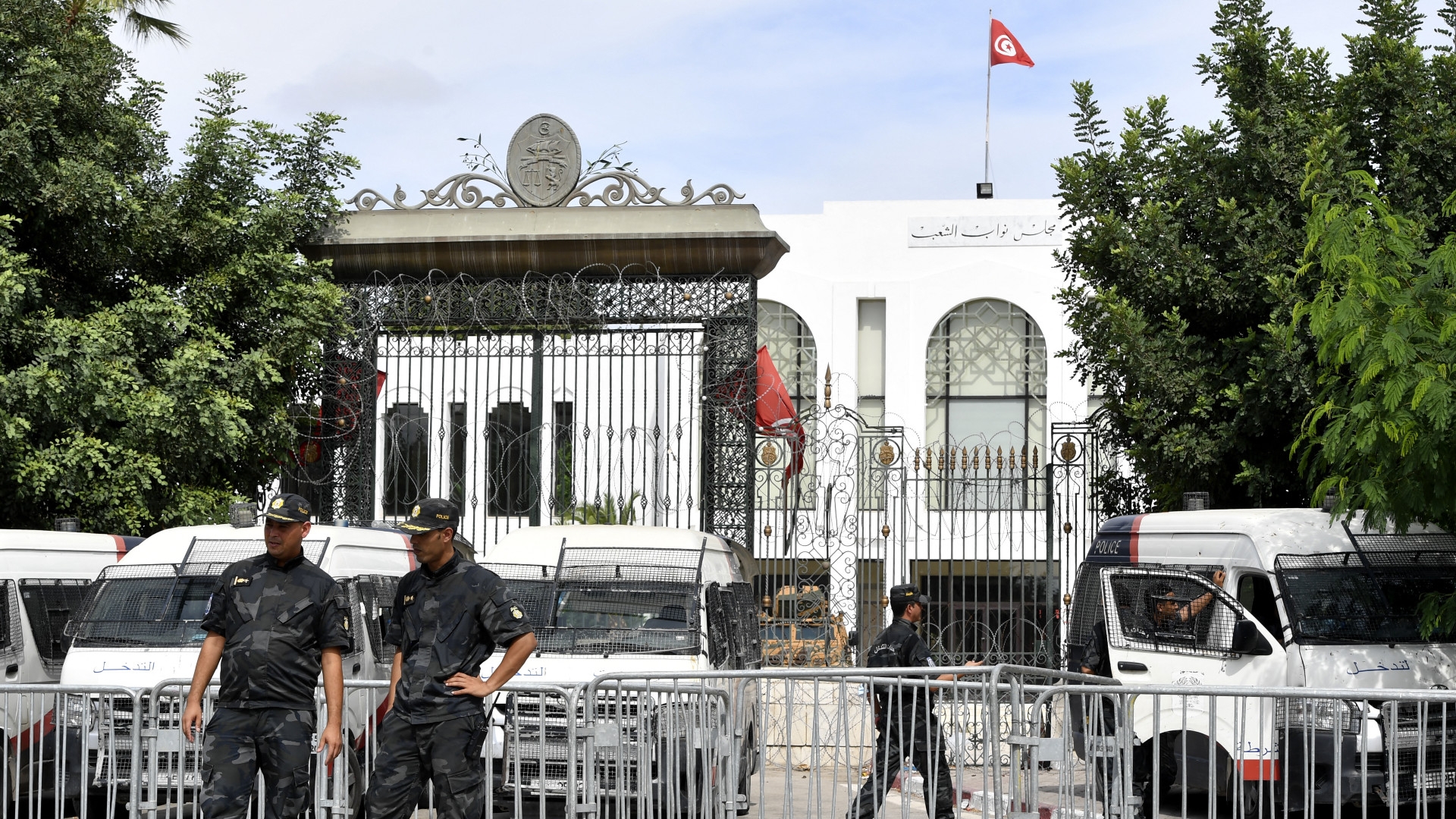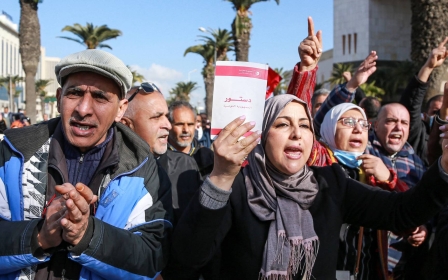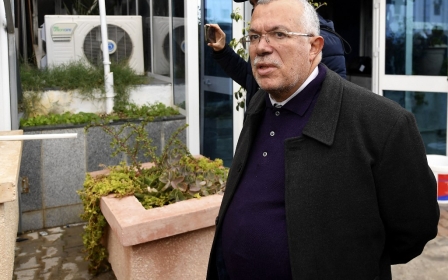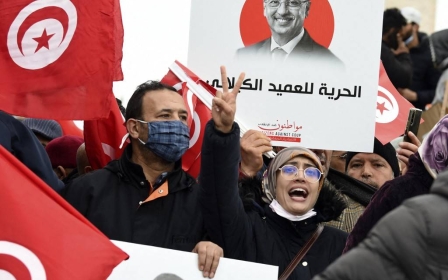Tunisia: Parliament votes to reject Saied's 'coup' with Zoom and Teams down

The online video applications Zoom and Teams stopped working across Tunisia on Wednesday afternoon as the country's lawmakers held their first session online in defiance of President Kais Saied's suspension of parliament.
Tunisian journalists and Middle East Eye sources on the ground confirmed that the two platforms were inaccessible from 2pm on Wednesday, when the online parliamentary meeting was scheduled to begin on Zoom. The official website of parliament has also been blocked, according to the same sources.
New MEE newsletter: Jerusalem Dispatch
Sign up to get the latest insights and analysis on Israel-Palestine, alongside Turkey Unpacked and other MEE newsletters
After the two platforms were blocked, the MPs moved their meeting to the GoToMeeting platform, a source from the Ennahda party's media office told MEE.
Some 123 MPs took part in the session, which was convened to vote on controversial measures taken by President Saied last July, including the suspension of parliament and the sacking of the prime minister, along with the seizure of vast judicial and legislative powers. The move has been denounced as a coup by most political parties.
Towards the end of the session, 116 MPs voted in favour of the law that invalidates Saied's power grab. Parliament requires 109 votes to pass a law. Now the law has been approved, "legally, Saied cannot do anything”, said Mohamed-Dhia Hammami, a Tunisian political analyst.
“This is a great day for Tunisia,” said Maher Madhioub, a member of parliament for Ennahda.
“The 116 votes are a message to Mr Saied, that he has deviated from the constitution and entered the country into a difficult path,” Madhioub told MEE.
Madhioub, who attended Wednesday’s session and voted in favour of the law, said the MPs are also calling for early presidential and parliamentary elections, as well as national dialogue that aims at restoring the country’s democratic path and “saving the state from bankruptcy”.
Another meeting of parliament is scheduled to be held on Saturday to discuss the economic situation in Tunisia, according to a statement from the parliament office on Monday. Saied dismissed the meetings as "illegal".
"Tunisia has the sovereignty of the state abroad, and the sovereignty of the people within its borders," he said, according to the Tunisia presidency's Facebook page. "Whoever wants to tamper with it or reach internal fighting, there are forces and institutions that will deter them from their goals," he added.
Power grab
On 25 July last year, President Saied announced a raft of controversial measures, revealed by Middle East Eye two months earlier, including the suspension of parliament and the sacking of the prime minister.
Saied also shut down the country's independent national Anti-Corruption Authority and sidelined the Independent High Authority for Elections. Last month, he dissolved the Supreme Judicial Council - the body that deals with judicial independence - and granted himself control over the selection and promotion of judges.
Saied has cited rocketing unemployment, rampant corruption and the coronavirus pandemic as reasons for his power grab.
His measures have been followed by a crackdown on the opposition and their protests. Many have faced trials before military and civilian courts and given jail sentences for charges denounced by rights groups as politically motivated.
This article is available in French on Middle East Eye French edition.
Middle East Eye delivers independent and unrivalled coverage and analysis of the Middle East, North Africa and beyond. To learn more about republishing this content and the associated fees, please fill out this form. More about MEE can be found here.





